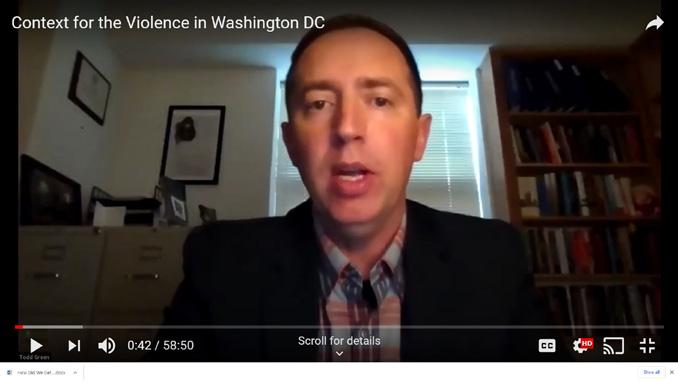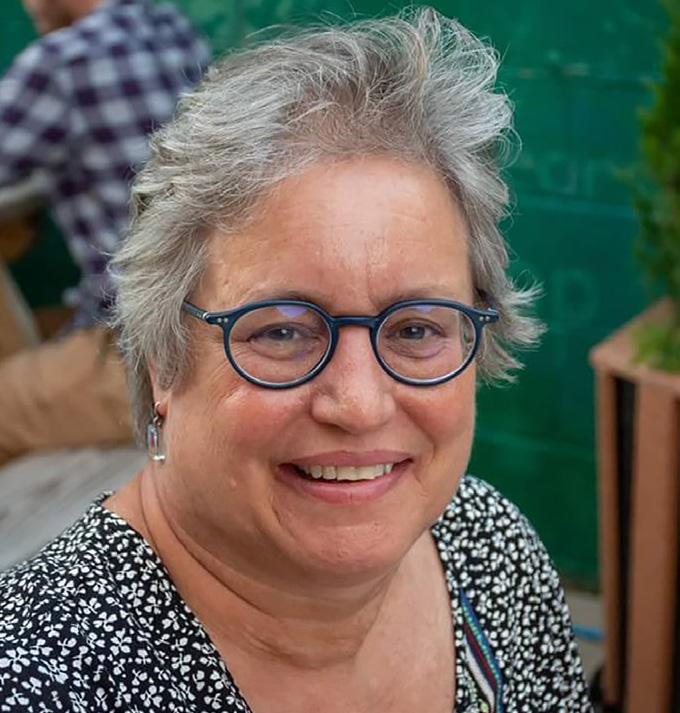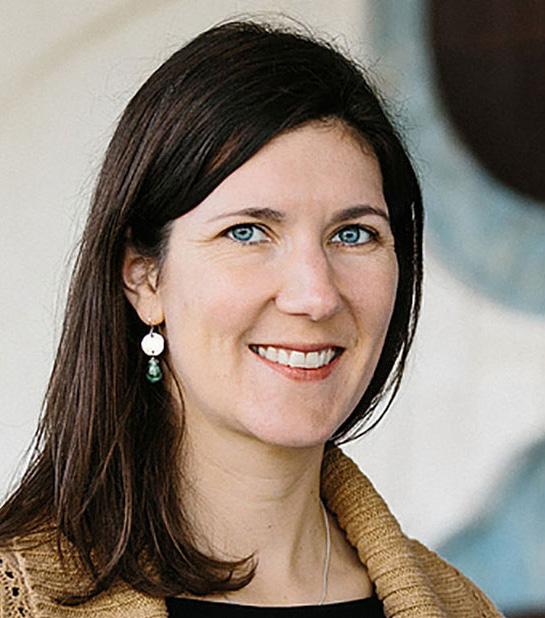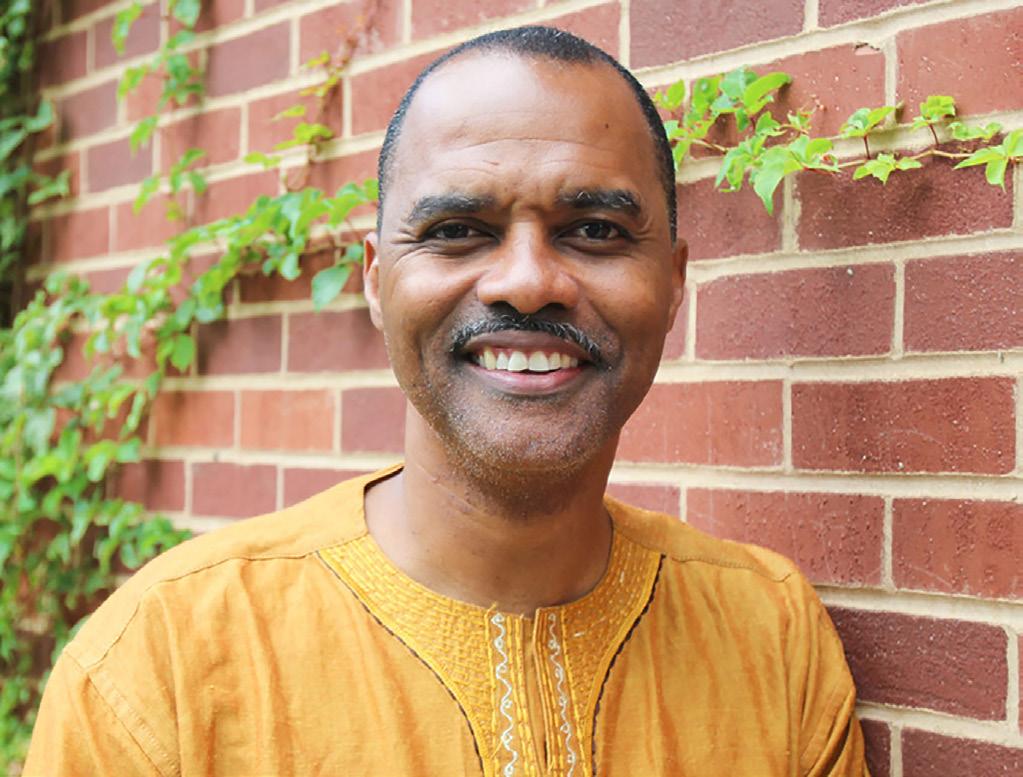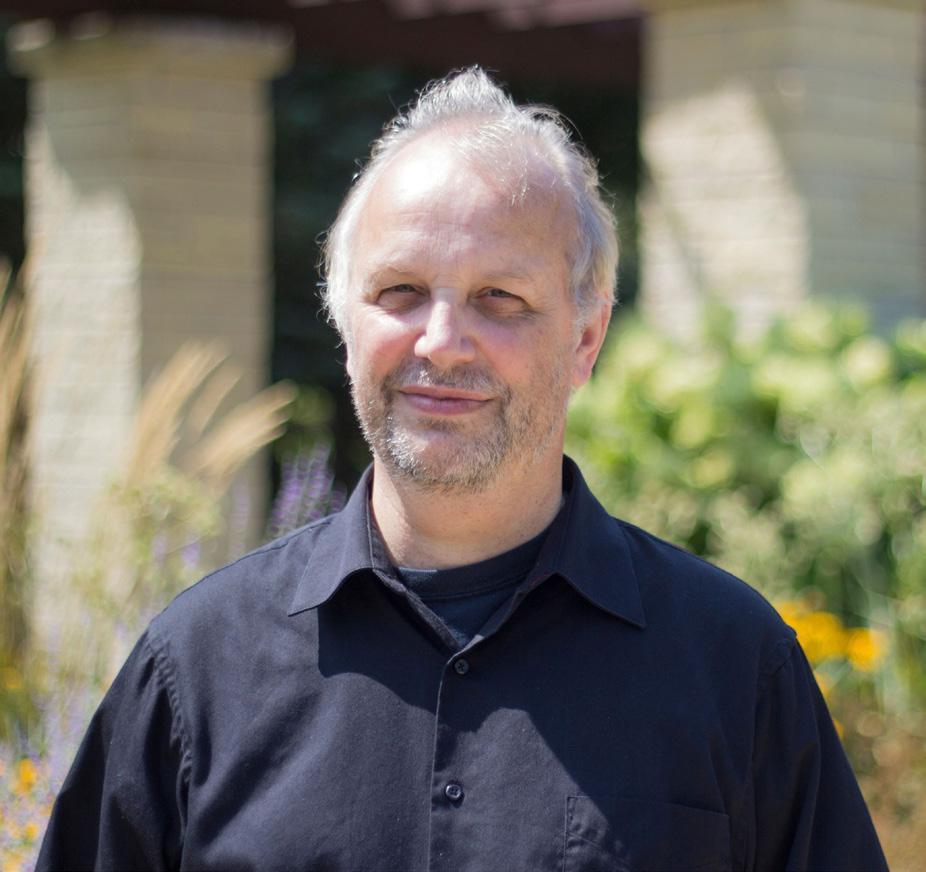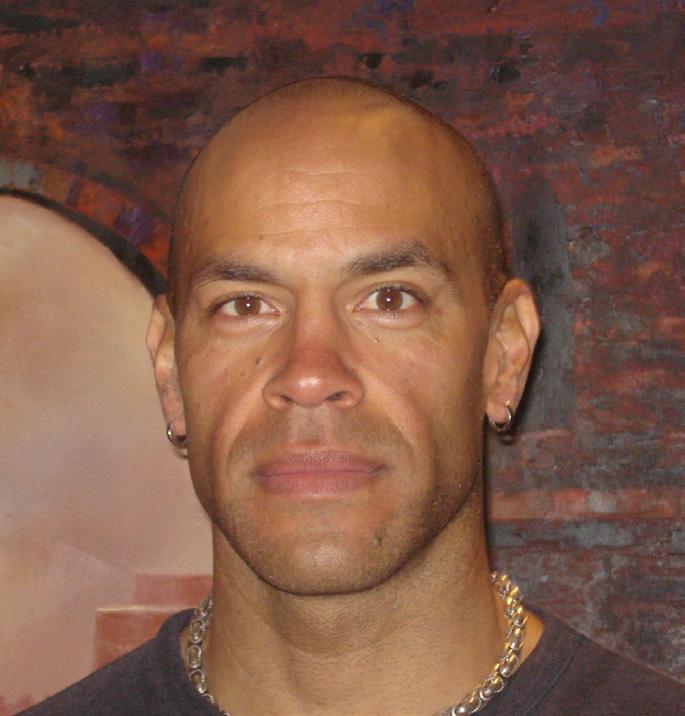
4 minute read
Shifting Our Thinking on Islamophobia (March 3, 2021) Todd Green
from Agora Spring 2021
Shifting Our Thinking on Islamophobia
by TODD GREEN, Associate Professor of Religion
Good morning. It’s my pleasure to be the first chapel speaker in the series called Interfaith Cooperation and Civil Rights. Let me offer my gratitude first to Dr. Edward Curtis who kicked off this theme for us last Wednesday evening with a talk focused on the challenges he has faced in the interfaith movement with engaging on questions of Palestinian liberation and civil rights. My own brief remarks this morning will focus on an area that intersects both with my research and my public engagement. My focus will be on the need for Christians to rethink their approaches to and understandings of Islamophobia in an age in which civil liberties for Muslims have been under constant assault and in which Muslim lives and livelihoods have been jeopardized. In my experience, Christian allies who have genuine interests in combating Islamophobia struggle to understand what it is they are actually trying to combat when it comes to anti-Muslim prejudice. The result is either misplaced energy or resources, or simply inaction. While there are many misunderstandings of Islamophobia that abound, the one I want to focus on this morning is the widespread belief that Islamophobia is driven by an ignorance of Islam. The idea here is that if more people knew more things, or had more accurate information, about Islam, there would be less prejudice. In other words, if more non-Muslim Americans knew the five pillars of Islam, or studied the Qur’an, or recognized the significance of fasting during Ramadan, then they would be less Islamophobic. The end result has been countless “Islam 101” talks and presentations around the country for the past twenty years. The idea behind these campaigns to educate the public on Islam is the assumption that ignorance is the main driver of Islamophobia, and knowledge of Islam is the solution. While it is true that ignorance abounds among Christians and many others in America when it comes to Islam, ignorance is not so much the cause of Islamophobia as it is the byproduct of it. Racism, not ignorance, is the main driver. It’s racism that animates Islamophobia. It’s racism that gives Islamophobia its legs and its life. Islamophobia as racism makes it difficult for increasing numbers of Christians to “download” correct information about Islam so that suspicions toward Muslims are alleviated. Islamophobia as racism distorts and damages the cognitive frameworks of majority populations, including Christians, so that it becomes epistemologically and theologically challenging to learn about Islam in a healthy and constructive manner. A common retort I hear whenever I make this point is: “But Islam is not a race. Muslims are not a race.” It’s true. Islam is not a race, nor are Muslims. But Muslims are racialized. Muslims are treated as a race, as a monolithic entity collectively presumed guilty of harboring terrorist impulses. They are viewed and dealt with as a suspect population, deserving of contempt and alienation. Their religion is framed as a monolithic belief system inherently oppressive and violent and therefore as a threat to presumably peaceful Christians or a presumably peaceful America. It’s a form of racism scholars refer to as cultural racism, or racism that involves hostility toward a group of people based on real or perceived religious beliefs, cultural traditions, and ethnicity. All of this opens the door for governmentbased surveillance, racial profiling, immigration bans, and other forms of systemic discrimination against anyone connected to Islam. It’s also a racism that at times relies on traditional racialization categories that many of us are more familiar with, such as skin color. That’s why it’s not only Muslims but those who are “read” or perceived as Muslims that are targeted with racist rhetoric and violence. The first post-9/11 retaliatory murder, for example, claimed as its victim Balbir Singh Sodhi. The killer was a man named Frank Roque. Roque saw Sodhi outside Sodhi’s gas station in Arizona and thought Sodhi was a Muslim. So he killed him as payback for 9/11. Sodhi, however, was not a Muslim. He was a Sikh, part of an entirely different religion. But Sodhi had brown skin, wore a turban, and had a long dark beard. To Roque, Sodhi “looked” Muslim. Individuals with a South Asian or Middle Eastern background, irrespective of their actual religion, are often subject to discrimination and violence based on their perceived religious identity, a perception driven by assumptions based on skin color and/or cultural and religious difference. We’ve witnessed other notable instances of this kind of
MARCH 3, 2021
Todd Green
racism leading to violence against nonMuslims, including the 2012 massacre at a Sikh gurdwara outside of Milwaukee that almost certainly involved the perpetrator, Wade Michael Page, mistaking Sikhs for Muslim. The need for Christians to shift their thinking from Islamophobia as driven by ignorance to Islamophobia as driven by racism matters in how we understand and counteract this form of bigotry. If we view Islamophobia primarily as ignorance, our energy will continue to be disproportionately given to teaching the public about Islam, in the hopes that if enough individuals acquire basic information about Islam, Islamophobia will fade away. But if we view Islamophobia primarily as racism, then our gaze will widen to the systemic and violent aspects of Islamophobia, and our energy will be redirected to incorporating strategies modeled on other successful anti-racism movements in modern American history. These strategies include nonviolent protests, economic boycotts, and other forms of high-impact grassroots activism. Christians can and should play a central role in this anti-racism work. And Christians can and should see this anti-racism work in response to Islamophobia not as an extracurricular activity, not as something they get around to doing once they have done the “real” work of ministry, but rather as essential to their Christian identity and witness.

